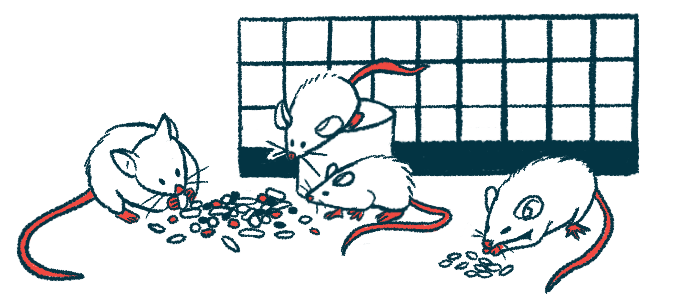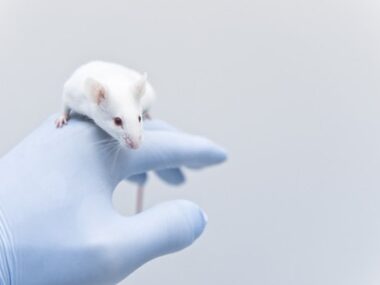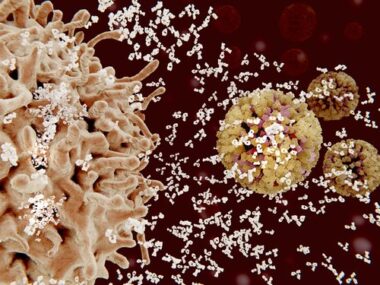Small Molecule K-7174 Improves Cognitive Function in Lupus Mice
Treatment may help protect blood-brain barrier in neuropsychiatric SLE
Written by |

A small molecule called K-7174 was found to ease neuropsychiatric symptoms of systemic lupus erythematosus (SLE) in a recent study in mice, and even helped to improve cognitive function.
Researchers found that treatment with the molecule may protect against neuropsychiatric SLE (NPSLE) by preserving the selective blood-brain barrier (BBB), a tightly knit layer of cells that regulates the passage of substances into the brain from the blood circulating in the rest of the body.
“This study deemed K-7174 as a valuable small-molecule drug for the treatment of NPSLE,” the researchers wrote.
Non-neurological manifestations of lupus, including spleen enlargement and kidney problems, also were alleviated with K-7174 treatment.
The study, “Small Molecule Compound K-7174 Attenuates Neuropsychiatric Manifestations in Lupus-prone Mice,” was published in the journal Brain Research.
Investigating K-7174 in SLE
An autoimmune condition, SLE is marked by inflammation in multiple systems of the body. In some cases, lupus can affect the nervous system, leading to neuropsychiatric symptoms, such as impairments in cognitive function, headache, and memory loss among patients.
Yet, the underlying causes of NPSLE remain poorly understood, and this complication is a significant contributor to disease burden for patients.
It has been suggested that the breakdown of the BBB could be a driver of NPSLE, as it would allow for inflammatory molecules that drive nerve cell damage to reach the brain.
“Targeting BBB could be a crucial strategy for the treatment of NPSLE,” the researchers wrote.
K-7174 is an investigational compound with immune-modulating and anti-inflammatory effects. It belongs to a class of substances called proteasome inhibitors that are gaining ground for the treatment of cancer. Evidence also suggests that this type of treatment could influence cellular processes involved in maintaining the BBB.
Researchers in China thus wondered whether K-7174 might be a promising treatment for NPSLE.
The team tested their hypothesis in a mouse model of lupus. Animals were either injected with K-7174 (30 mg/kg) three times per week, or left untreated for a total of six weeks.
As expected, untreated mice with lupus showed signs of the autoimmune disease, including spleen enlargement and the presence of lupus-associated antibodies in the bloodstream. They also showed signs of lupus nephritis, marked by high levels of protein in the urine and kidney damage.
These symptoms were alleviated in mice given K-7174, altogether indicating that “K-7174 can improve lupus-like symptoms.”
Notably, K-7174 also was able to combat impairments in cognitive function — the most common manifestations of NPSLE in human patients — in the lupus mice.
During behavioral testing, untreated lupus mice showed evidence of cognitive problems compared with healthy mice. Such impairments included spatial learning and memory problems — all significantly alleviated with K-7174 treatment.
An analysis of brain tissue from the mice revealed that lupus was associated with nerve cell degeneration and damage to the BBB.
A series of experiments offered evidence that K-7174 can protect BBB integrity and prevent nerve damage in SLE. K-7174-treated mice showed less nerve cell damage than untreated mice, as well as higher levels of important BBB proteins.
Levels of albumin, a large protein that is able to enter the brain when the BBB is damaged and leaky, were elevated in the brains of lupus mice, but this was diminished with K-7174 treatment.
Moreover, K-7174 showed an ability to inhibit cells that are known to proliferate and facilitate BBB breakdown during inflammation, while increasing the levels of proteins that are critical for maintaining BBB integrity and preventing unwanted substances from passing through.
A series of other experiments in mice and cell cultures found that lactate, a byproduct of glucose (blood sugar) breakdown, was increased and associated with the breakdown of the BBB in lupus mice. While lactate can be used as an energy source for nerve cells, its excess is associated with cellular damage and death.
K-7174 was linked to a decrease in lactate and a subsequent protection of the BBB, which appeared in part to be related to the molecule’s ability to activate a signaling pathway called MCT4/NKAP/CREB, which in turn promotes the production of important BBB proteins.
Results altogether suggest that “K-7174 can protect BBB integrity, thereby alleviating neuronal death and cognitive impairment,” the researchers wrote, nothing that “the specific molecular mechanism is yet to be elucidated.”





